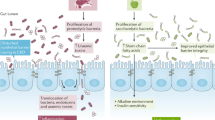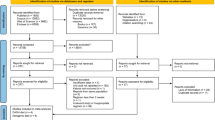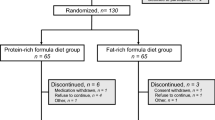Abstract
Objective: Heart and renal diseases are two major problems in diabetic patients. Hyperlipidemia is one of the main risk factors of cardiovascular complications in diabetes. The type of protein consumed also affects the changes in renal blood flow, glomerular resistance and renal function in these patients. Hence, this study was undertaken to show the effect of soy protein consumption on lipid profiles and kidney function of diabetic patients with nephropathy, who attended an educational university hospital as well as a private kidney disease clinic in Tehran.
Subjects and methods: This crossover randomized clinical trial was conducted on 14 patients who were free of any uncontrolled condition or other renal diseases. The patients were asked to follow a usual nephropathy diet (0.8 g/kg protein, 70% animal and 30% vegetable protein) for 7 weeks. After a washout period of 4 weeks consuming the prestudy diet, subjects were readmitted to repeat the same cycle with a similar diet containing 35% soy protein and 30% vegetable protein. Paired t-test, carryover effect and period effect were used for statistical analysis.
Results: There were 10 men and four women whose mean (s.d.) of weight was 70.6 (10.3) kg. Significant reductions were seen in total cholesterol (P<0.01), triglyceride (P<0.002) and LDL-c (P<0.04), urinary urea nitrogen and proteinuria (P<0.001) after soy vs animal protein consumption. There were no significant changes in HDL-c, LDL-c/HDL-c levels. We also saw a favorable effect on renal function.
Conclusion: Soy inclusion in the diet can modify the risk factors of heart disease and improve kidney function in these patients.
This is a preview of subscription content, access via your institution
Access options
Subscribe to this journal
Receive 12 print issues and online access
$259.00 per year
only $21.58 per issue
Buy this article
- Purchase on Springer Link
- Instant access to full article PDF
Prices may be subject to local taxes which are calculated during checkout
Similar content being viewed by others
References
Anderson JW, Johnstone BM & Cook-Newell ME (1995): Meta-analysis of effects of soy protein intake on serum lipids in humans. N. Engl. J. Med. 333, 276–282.
Anderson JW, Blake JE & Smith BM (1998): Effects of soy protein on renal function and proteinuria in patients with type 2 diabetes. Am. J. Clin. Nutr. 68(Suppl), 1347s–1353s.
Amico G & Gentile MG (1993): Influence of diet on lipid abnormalities in human renal disease. Am. J. Kidney Dis. 22, 151–157.
Burtis CA & Edward RA (1996): Tietz Fundamentals of Clinical Chemistry, 4th Edition, pp 53–79. Philadelphia: WB Saunders Company.
Dobois D, Chanson P & Timsit J, et al. (1994): Remission of proteinuria following correction of hyperlipidemia in NIDDM patients with non-diabetic glomerulopathy. Diabetes Care 17, 906–908.
Flies JL (1986): The Design and Analysis of Clinical Experiments, pp 263–271. London: John Wiley and Sons.
Green CS, Hanna TJ & Anderson JW (1999): Benefits of soy protein in diabetes. Third International Symposium on the Role of Soy in Preventing and Treating Chronic Disease; pp 10–15.
Joana LS, Karr CS, Hutchins AM & Lampe JW (1998): Influence of soybean processing, habitual diet, and soy dose on urinary isoflavonoid excretion. Am. J. Clin. Nutr. 68(Suppl), 1492s–1495s.
Jibani MM, Bllodworth LL, Foden E, Griffiths KD & Galpin OP (1991): Predominantly vegetarian diet in patients with incipient and early clinical diabetic nephropathy. Diabetes Med 8, 949–953.
Krummel D (2000): Nutrition in hypertension. In: Krause's Food, Nutrition and Diet Therapy, LK Mahan & S Escott-Stump, eds. 10th Edition, pp 553–559. Philadelphia: WB Saunders Company.
Kurowska EM, Borradaile NM, Spence JD & Carroll KK (2000): Hypocholestrolemic effects of dietary citrus juices in rabbits. Nutr. Res. 20, 121–129.
Nilavsen K & Meinertz H (1998): Variable response to dietary soy protein in healthy normolipidemic men. Am. J. Clin. Nutr. 68, 1380s.
Potter SM, Baum JA, Teng H, Stillman RJ, Shay NF & Erdman JW (1998): Soy protein and isoflavones. Am. J. Clin. Nutr. 68, 1375s.
Author information
Authors and Affiliations
Corresponding author
Rights and permissions
About this article
Cite this article
Azadbakht, L., Shakerhosseini, R., Atabak, S. et al. Beneficiary effect of dietary soy protein on lowering plasma levels of lipid and improving kidney function in type II diabetes with nephropathy. Eur J Clin Nutr 57, 1292–1294 (2003). https://doi.org/10.1038/sj.ejcn.1601688
Published:
Issue Date:
DOI: https://doi.org/10.1038/sj.ejcn.1601688
Keywords
This article is cited by
-
VLCKD: a real time safety study in obesity
Journal of Translational Medicine (2022)
-
Impact of Functional Foods on Prevention of Cardiovascular Disease and Diabetes
Current Cardiology Reports (2015)
-
The effects of soy protein on chronic kidney disease: a meta-analysis of randomized controlled trials
European Journal of Clinical Nutrition (2014)
-
RETRACTED ARTICLE: Soy protein prevents renal damage in a fructose-induced model of metabolic syndrome via inhibition of NF-kB in male rats
Pediatric Nephrology (2011)
-
Crops that feed the World 2. Soybean—worldwide production, use, and constraints caused by pathogens and pests
Food Security (2011)



